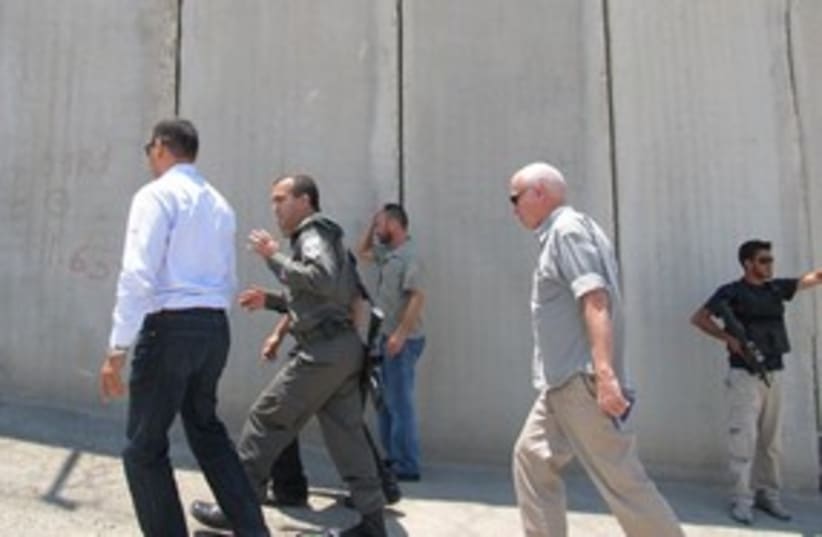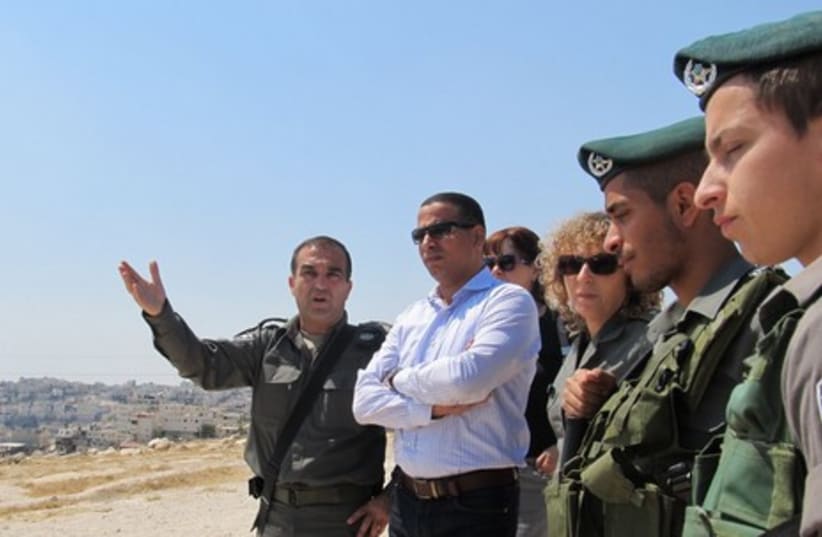
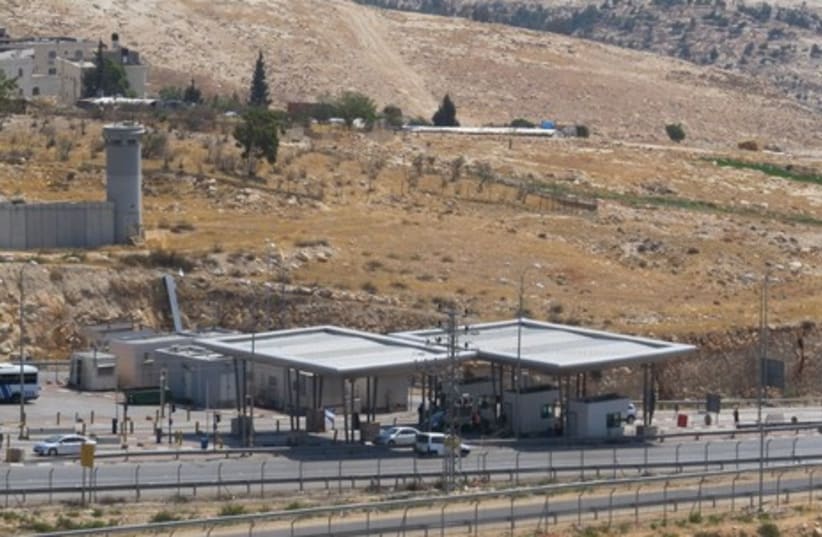
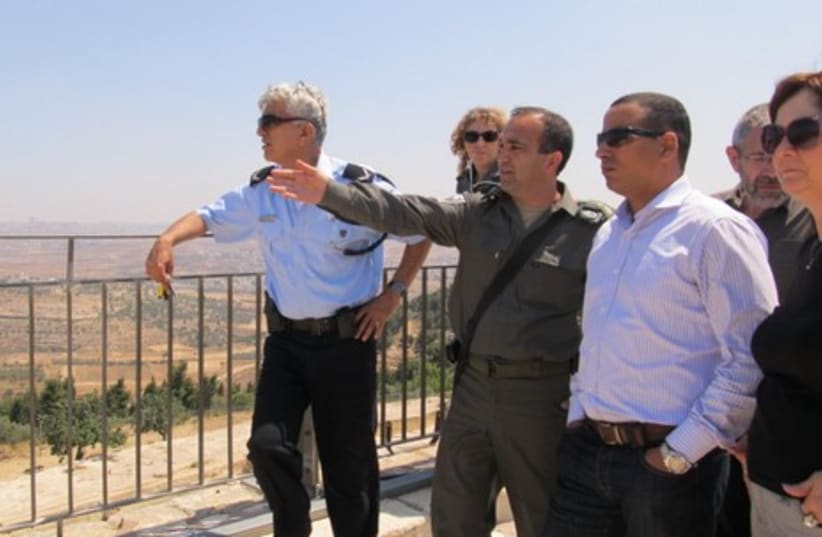
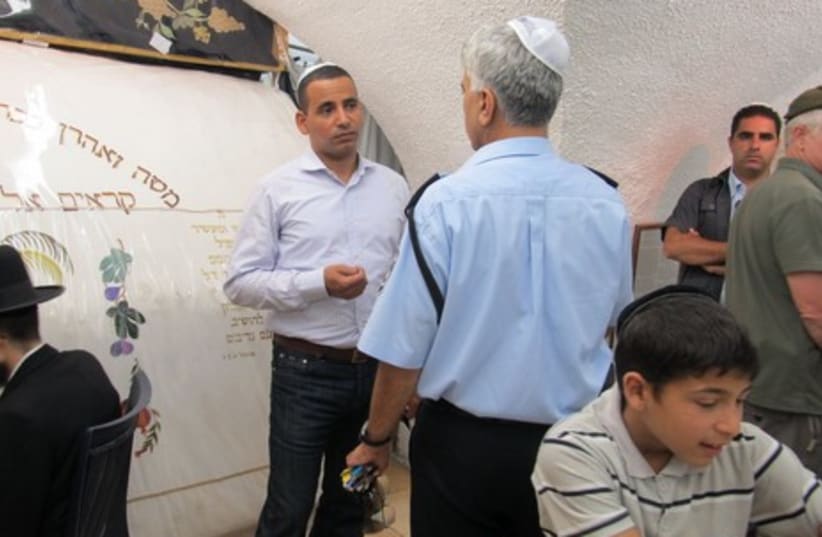
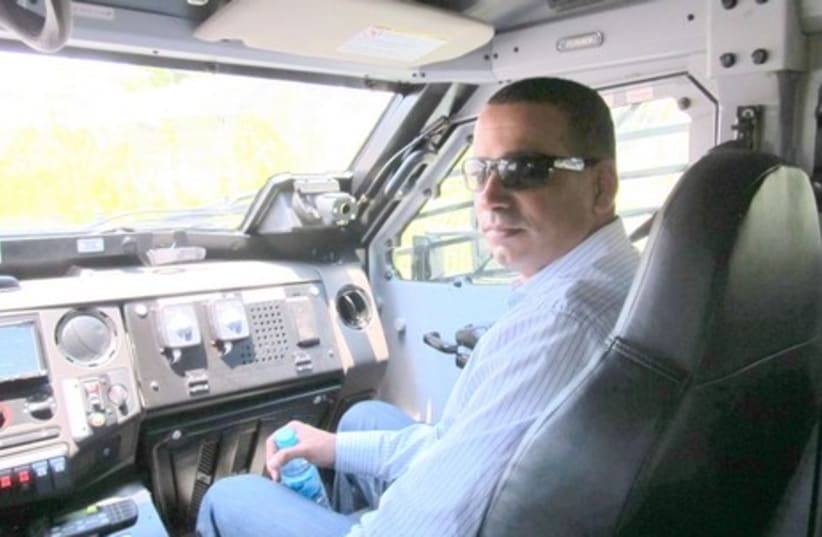
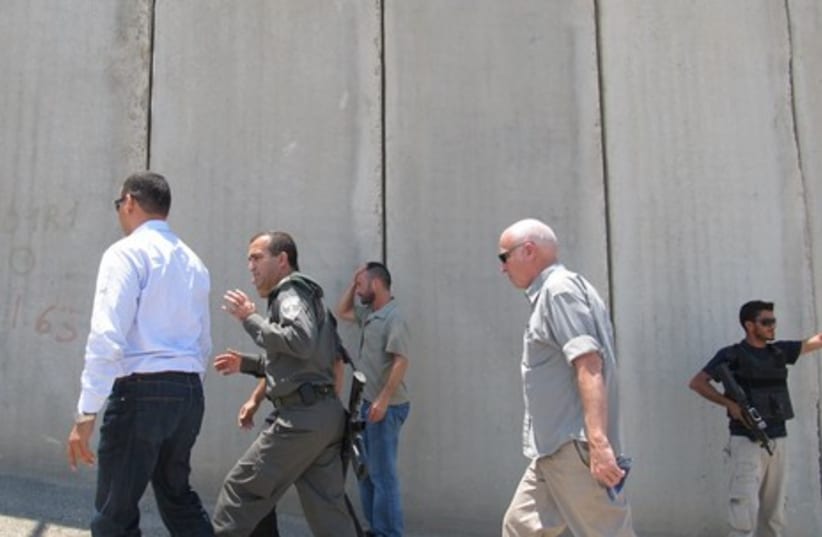
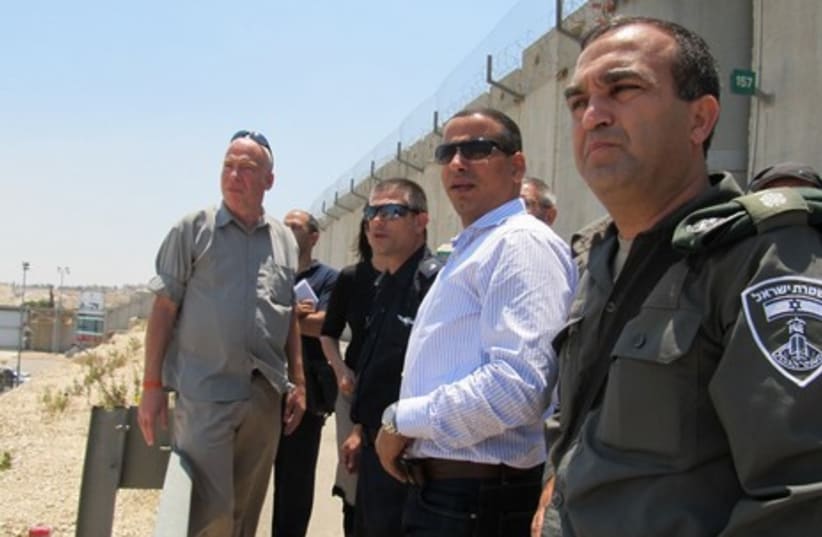
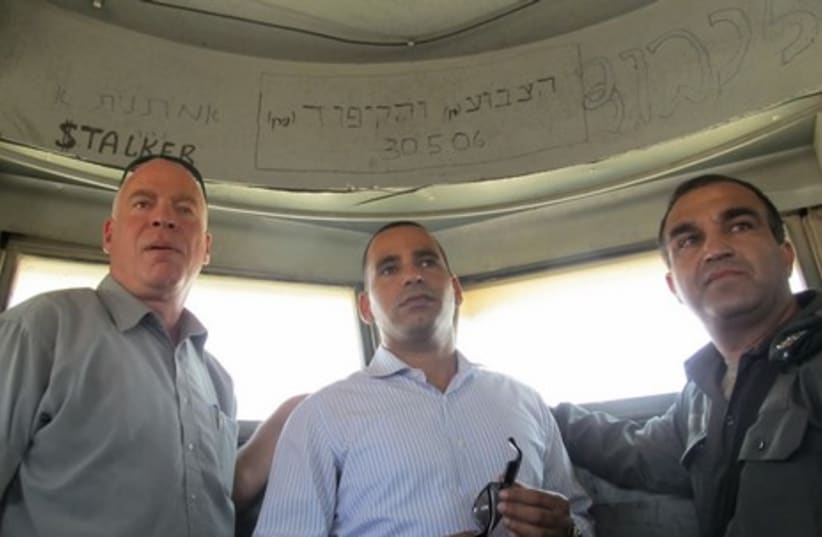
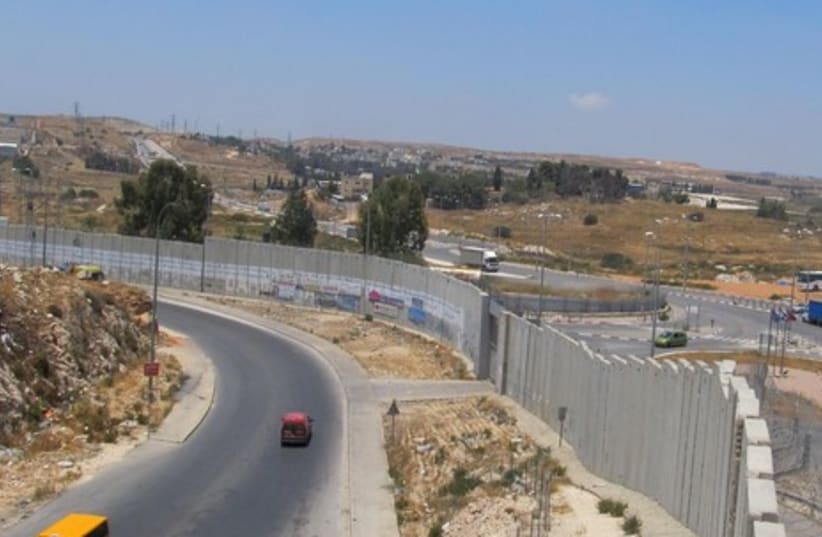

The Jerusalem envelope refers to the eastern borders of the city, where municipality lands meet lands controlled by the Palestinian Authority.RELATED:'W. Bank fence construction frozen due to budget' IDF rerouting security barrier along Bil'in MK Yoel Hasson (Kadima), the head of the State Control Committee, and Committee member Uri Ariel (National Union) both noted that procedures needed to be improved and streamlined at the Kalandiya checkpoint, Jerusalem’s biggest checkpoint which serves 24,000 people per day. Ariel was also surprised to learn that parts of the Jerusalem municipality, such as Kafr Aqab, are located on the other side of Kalandiya, and noted that the Control Committee would meet soon to discuss shortages and difficulties faced by the 60,000 residents living inside Jerusalem but on the other side of the wall.“I came to see the ‘Jerusalem envelope’ because I want to know if things are really working on a security level, also for our residents and also for the Palestinians that are passing through,” said Hasson at the overlook of the Nabi Samuel monument north of Ramot.“Jerusalem needs to be open and accessible, but also needs to defend her borders so that she will be safe,” he said.Hasson praised the “difficult decision” by former prime minister Ariel Sharon to build the security barrier but added that its route was not permanent and not the final borders of a Palestinian state. “It could move and it could change,” he said. “The final borders will be decided in a negotiation room.”Police and border police lead the tour of Kalandiya, Nabi Samuel, Atarot, and Mezudat Adumim, the new border police base located in the area of E-1.There are 16 border crossings in the Jerusalem area between areas controlled by the PA and Israel, four of which are major checkpoints, and the rest are crossings such as Hizme where most Israeli cars are waved through. Brig.-Gen. Mani Yitzhaki explained that the police and border patrol are moving toward privatizing the daily operations at the major checkpoints, which would free up police and border control for security situations elsewhere.Modi’in Ezrahi, a private security company that also operates in east Jerusalem and the Old City guarding Jewish residents in predominantly Arab neighborhoods, won the tender and has been working at Kalandiya for more than a year and a half.
